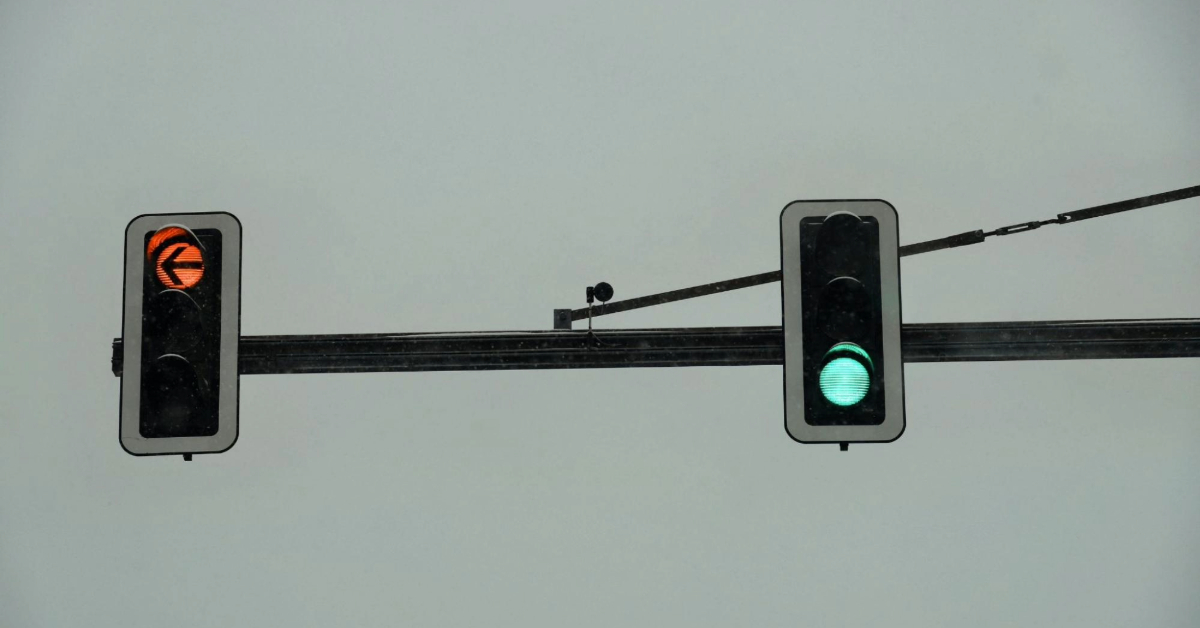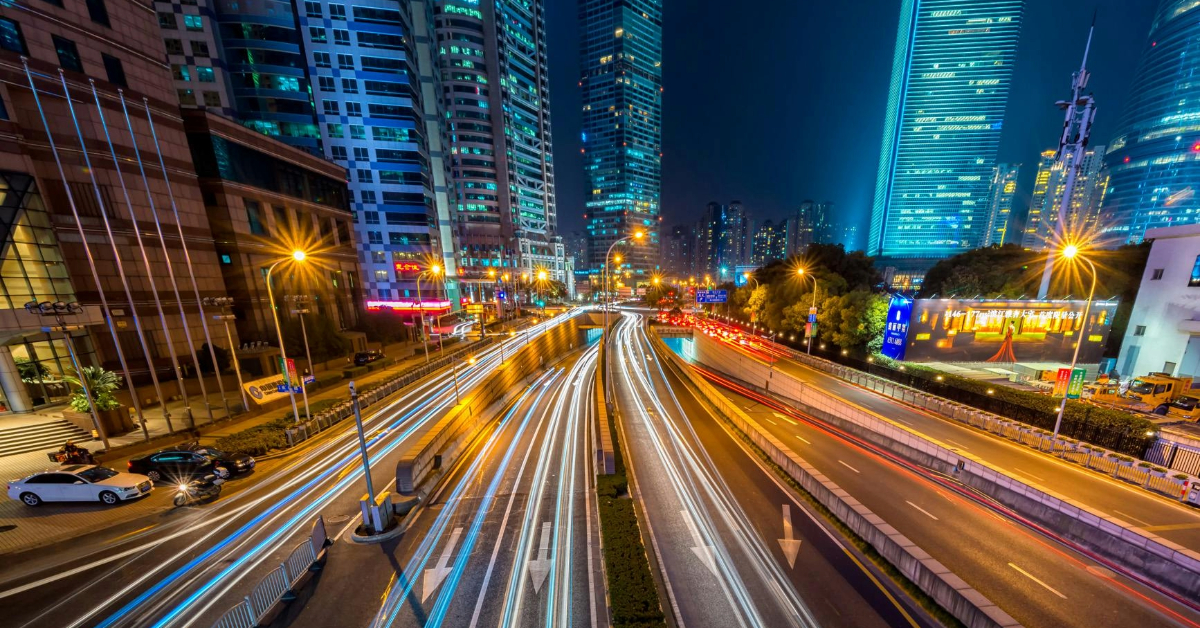Have you just moved to Abu Dhabi and are eager to explore the city? We understand that while the capital’s smooth highways and modern infrastructure are exciting, navigating a new place can also feel overwhelming. Between getting familiar with the rules of the road and understanding local etiquette, it’s natural to feel a little uncertain.
The good news is, you don’t need to worry. While your seat belt keeps you safe on the road, we’re here to guide you through the essentials—whether it’s licensing requirements, road etiquette, or key documents—so you can drive with confidence and avoid unnecessary fines.
- Introduction to driving in Abu Dhabi
- Eligibility & licensing requirements
- Mandatory vehicle & passenger safety
- Traffic rules & enforcement in Abu Dhabi
- Insurance requirements
- Road signs & navigation
- Driving etiquette & safe practices
- Process for obtaining a driving licence & course
- Key Takeaways
- Frequently Asked Questions
Introduction to driving in Abu Dhabi

Even people who haven’t been to Abu Dhabi are aware of how modern and well-maintained its roads are. From wide highways and clear signage to smart traffic systems, your road trips and daily commuting will be something to look forward to, and the city’s driving etiquette extends that courtesy to everyone.
When it comes to safety, Abu Dhabi makes no compromises. The rules are clear, and enforcement is taken seriously. At its core, this isn’t about restrictions—it’s about ensuring that you and everyone else on the road can drive with peace of mind. After all, the city offers experiences like Yas Island and scenic drives along the Corniche, but these can only be thoroughly enjoyed when safety is a top priority.
Overview of Abu Dhabi’s traffic regulations
Driving in Abu Dhabi is a mix of traditional road rules with high-tech systems. Here’s what you can expect:
- Drive on the right, overtake on the left: The UK habit of the opposite side is not applicable here. Stay on the right and overtake from the left.
- Hands-free only for calls: Use a hands-free system when taking a call; handheld phone use is prohibited.
- Use the horn for emergencies: Reserve honking for situations where it is truly necessary to alert others to danger. Unnecessary or excessive use of the horn not only causes disturbance but can also result in fines.
- Roundabout discipline: Give way to vehicles already circulating the roundabout.
- Respect local and religious customs: Traffic flow tends to change around prayer times or public holidays. Be aware of these changes.
- Expect smart traffic support: Adaptive lights, digital alerts and automated cameras are commonly used to monitor flow and violations.
Importance of road safety and compliance
Driving in a city like Abu Dhabi is way more about following rules. The road is for everyone, and they want it to remain that way. The entire idea is about creating a safe environment so everyone can be responsible for themselves and others. Strict traffic enforcement measures are in place to keep you accountable, not to deter people.
When the emirate gives you a Corniche strip to cruise on, it expects only a little from you in return. Following the rules has more benefits than you can imagine:
- Self-protection and passenger safety: When you wear seatbelts and ensure your children are in proper safety seats, it significantly reduces the risk of injury in accidents.
- Save money, reduce stress: Sticking to speed limits, not jumping red lights, and avoiding reckless behaviour prevents financial and legal adverse consequences.
- Enjoy a smooth traffic flow: Adhering to speed limits, roundabout etiquette, and lane discipline helps reduce congestion and prevent accidents.
- Stay prepared for unique road conditions: Sandstorms, animal crossings, and sudden weather changes are common, so alertness is vital.
Remember, compliance isn’t restrictive, it’s empowering! By understanding and respecting the rules, you gain confidence behind the wheel and make every journey safer for yourself and others.
Eligibility & licensing requirements
Who can drive?
Driving in Abu Dhabi requires meeting specific age and licensing criteria:
- Residents: Minimum age is 17 years.
- Tourists: Must hold a valid driving licence from their home country, along with an international driving permit (IDP).
Whether you’re a newcomer or a long-term resident, it’s essential to have your licence ready and valid for Abu Dhabi roads.
Essential documents on board
Always carry the following documents when driving:
- Valid driving licence (UAE or recognised foreign licence with IDP)
- Emirates ID
- Vehicle registration (Mulkiya)
- Insurance documents
Since Abu Dhabi is all about making life easy, they accept digital copies of these documents via official apps. So, ditch that heavy folder of papers and download the app to stay compliant.
Mandatory vehicle & passenger safety
Seatbelt & child safety
Safety is paramount on Abu Dhabi’s roads, which brings us to the most obvious safety feature – the seatbelt. Seatbelts are mandatory for all passengers, and the driver is responsible for ensuring that everyone is belted in. Violations attract fines and black points.
- Children under four must use an appropriate child safety seat.
- Children under the age of 10 or shorter than 145 cm should not be seated in the front.
Car equipment checklist
Ensure your vehicle is equipped with:
- Warning triangle
- Spare wheel
- Fire extinguisher
These basic safety tools are not only legal requirements but practical essentials for unexpected situations.

Traffic rules & enforcement in Abu Dhabi
Road laws & etiquette
Driving etiquette is super important as Abu Dhabi encourages considerate driving to keep everyone safe:
- Maintain safe distances and avoid tailgating.
- Use indicators at least 30 metres before turning or changing lanes.
- Give way to pedestrians at marked crossings and avoid crossing roads at speeds over 80 km/h.
- Expect unexpected obstacles, such as sandstorms, extreme weather, or even animals, on rural roads.
Speed limits & smart enforcement
Speed limits vary depending on the area:
| Zone | Speed Limit |
|---|---|
| School areas | 25–40 km/h |
| Urban areas | 40–80 km/h |
| Residential areas | 40 km/h |
| Highways (Abu Dhabi) | Up to 140 km/h |
| Rural roads | 100 km/h |
| Parking/service roads | 25 km/h |
Abu Dhabi has zero tolerance for exceeding speed limits, including the usual 20 km/h grace allowed elsewhere. Smart cameras detect violations, and fines are applied immediately.
Digital alerts, red and blue lights, and adaptive traffic signals ensure you are informed and can adjust safely.
Black points system & penalties
Abu Dhabi uses a black points system to monitor traffic offences:
- Maximum of 24 points before licence suspension (one year).
- Severe violations like extreme speeding or drunk driving incur the full 24 points instantly.
- Examples:
- Running a red light = 8 points
- Speeding by more than 80 km/h = 23 points
New drivers can face stricter penalties, including immediate fines or licence suspension. However, you know better to be safe than sorry.
Alcohol & substance laws
Abu Dhabi maintains a zero-tolerance policy for alcohol and substances while driving. Any detectable trace can result in severe penalties, including:
- Fines up to AED 30,000
- Vehicle impoundment
- Jail time for severe cases
This policy is non-negotiable, reflecting Abu Dhabi’s commitment to road safety and not driving under the influence.

Insurance requirements
All vehicles are required to have mandatory insurance, at a minimum, covering third-party liability. Driving without insurance can result in fines, black points, or impoundment. Comprehensive insurance is highly recommended for added peace of mind, especially when driving long distances and navigating city traffic.
Road signs & navigation
Abu Dhabi uses English and Arabic signage. Some unique signs include:
- Camel crossings in desert-adjacent areas (This may be new for you, but since it is a desert, camels on the road in certain areas are a common feature)
- Sandstorm warnings (Desert life)
- Variable speed limit and smart traffic signs
It is always good to familiarise yourself with these to navigate areas easily and safely.

Abu Dhabi’s unique systems
The city has innovative traffic systems that will provide you with real-time updates, such as:
- Digital alerts for accidents or bad weather
- Adaptive traffic lights to improve flow
- Automated enforcement cameras for speed and red-light violations
These systems enhance safety and reduce the risk of fines if you adhere to the rules.
Driving etiquette & safe practices
If you want to match the expertise of Abu Dhabi’s drivers, you should know that safe driving goes beyond following the law:
- Maintain a four-second following distance on highways.
- Avoid aggressive driving or tailgating.
- Anticipate local conditions, from sudden sandstorms to animal crossings.
- Yield politely to other vehicles and pedestrians.
Courtesy goes a long way in this city. When you are respectful towards others, not only do you avoid fines, but you also contribute to a safer, stress-free road environment.
Process for obtaining a driving licence & course
If you are a resident, you will need to obtain a licence by enrolling in an RTA-certified driving school. You will be issued one after completing the theory and practical lessons and passing the relevant tests.
For expats & tourists
- Tourists: Drive using a valid home licence plus an international driving permit.
- Expats: Licences from certain countries can be exchanged for a UAE licence; otherwise, complete testing is required.
This is done to ensure that everyone on the road meets the same safety and competence standards.
While you are at it, explore the best places for expats to live in Abu Dhabi.
Key takeaways
Driving in Abu Dhabi is a blend of modern infrastructure, strict enforcement, and innovative technology. The city’s strict enforcement, intelligent traffic systems, and varying speed limits make compliance essential. A zero-tolerance alcohol policy, black points for violations, and the requirement to carry valid documents, insurance, and safety equipment apply to all drivers.
Tourists, expatriates, and new drivers must also follow additional regulations, staying updated through official apps and traffic alerts. By following these rules, drivers can ensure safe and predictable journeys, and enjoy Abu Dhabi with confidence.
Frequently Asked Questions
Residents must be 17 years old, and tourists require a valid international driving permit.
Some nationalities can exchange licences; others need an international permit.
Most fines in Abu Dhabi range between AED 300 and AED 3,000, and the black points system is designed to encourage safer driving habits.
Yes, at the very least, third-party liability is required. Driving without insurance is a serious offence.
There’s no 20 km/h grace margin; all speeding is detected by smart cameras and fines are issued immediately.